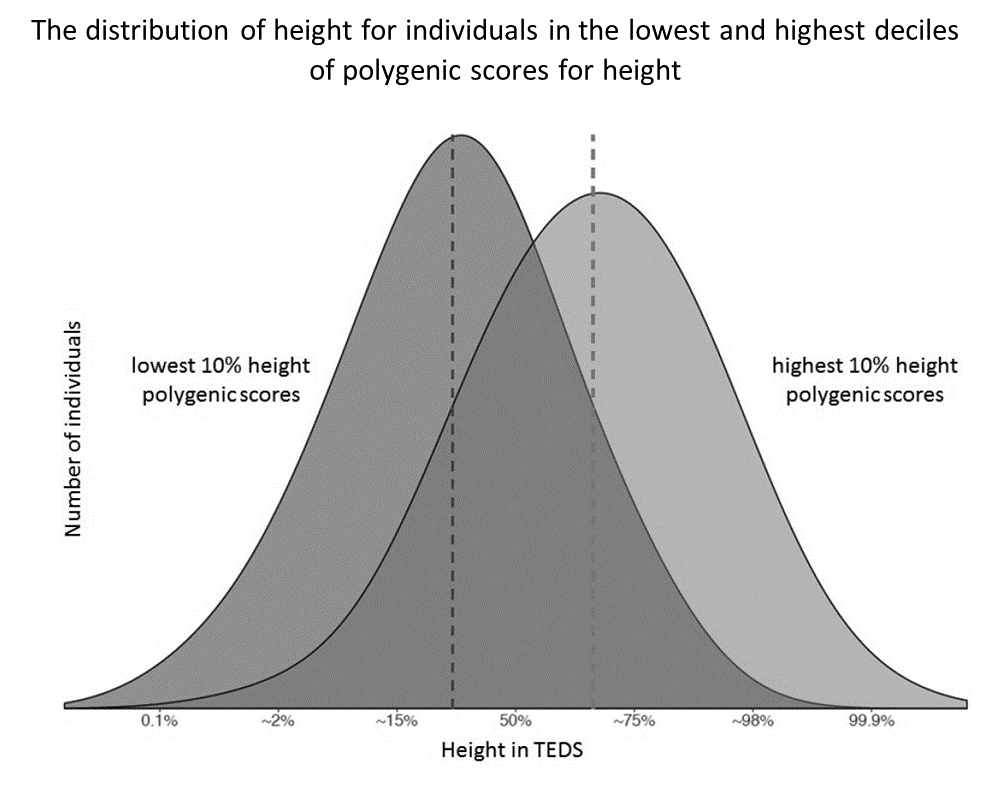12/08/2019
Polygenic scores in TEDS
Thanks to the DNA revolution, Behavioural Genetic research is more exciting than ever. By using large samples of participants, researchers have become increasingly able to identify which genetic variations are associated with a trait of interest. Thanks to this ability, more recently, an exciting new technique was developed. This technique, known as Polygenic Scoring, involves calculating personalised indicators of an individual’s genetic liability towards (or away from) a trait.
A large subsample of TEDS twins has been genotyped (i.e. had their genetic code analysed) and we have been able to generate polygenic scores to be used in TEDS research, across many traits. These range from anthropometric (e.g. height and weight) and physical health (e.g. asthma and back pain) traits, to more cognitive (e.g. IQ, and Years of Education) and personality (e.g. mood swings, and openness to experience) centric dimensions.
Such scores have been an important component of recent research from TEDS, as we have applied them in our research as a way to predict individual differences in outcomes. One study, Allegrini et al. (2019), showed that these scores, based on DNA alone, can predict 15% of the individual differences in GCSE scores in TEDS! This is a huge finding, considering that other predictors in the behavioural sciences explain outcomes to a much smaller degree.
The figure below displays the distribution of height for individuals with the lowest and highest 10% of polygenic scores for height in TEDS. It provides a clear illustration of how individual differences in polygenic scores can relate to differences in an individual’s observed outcome, in this case height.

One of the most exciting aspects of this polygenic scoring technique is that these scores will only increase in their ability to predict outcomes. The continued emergence of “genome-wide association studies”, with better power to identify associations between genes and outcomes, permits the calculation of better and better polygenic scores.
As polygenic scores have emerged for more and more traits, TEDS has slowly gathered a catalogue of these scores. We are excited to share the fact that our Data Manager has added a new “polygenic scores” page to our Data Dictionary. It details which scores are available in TEDS, and the technical aspects around their use. This can be accessed here.